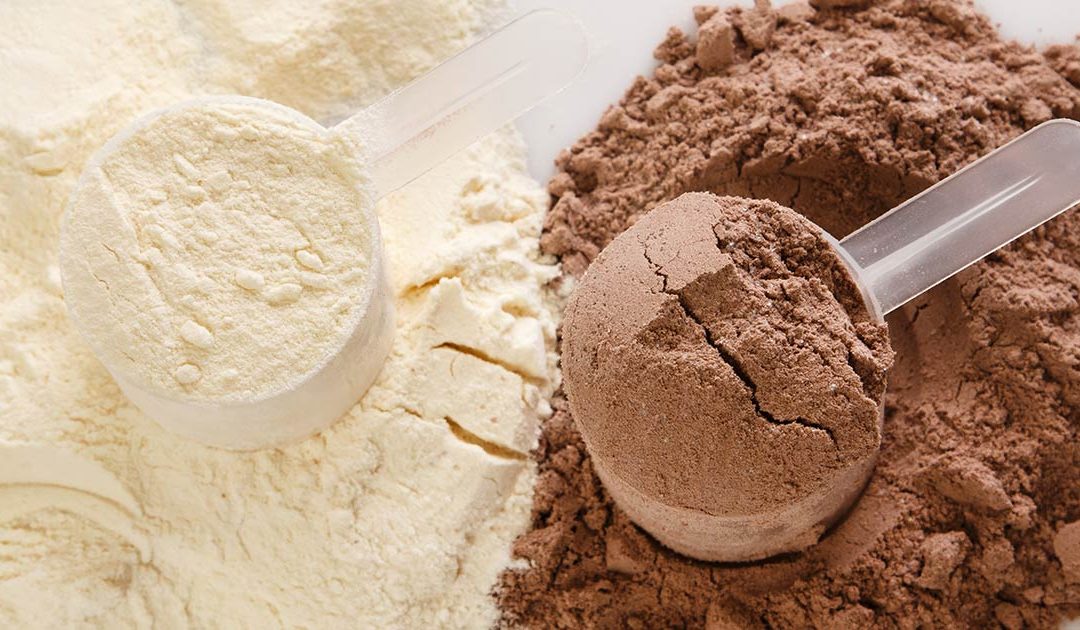For the longest time, whey protein concentrate was the only option for the average consumer. It’s still the predominant form of whey protein supplemented. And it’s still used as a filler for many of the processed foods we currently consume.
But, is there something better?
If we take the whey concentrate a step further in the processing application, it yields whey protein isolate.
Is it necessary to spend the additional money on whey protein isolate?
Read on to find out as we compare whey protein isolate vs concentrate.
Glynn’s Guide
Takeaways That Won’t Fail You
- Both whey protein concentrate and whey isolate have high bioavailabilities.
- Whey protein isolate is more expensive because of the additional processing it undergoes.
- Isolate as a product is more densely made of protein, i.e, less other fillers in the product.
- I don’t believe the additional benefits (not many) are worth the additional price.
- Those who are super in tune with their physique may benefit from whey protein isolate.
- Otherwise, save your money and buy whey protein concentrate from a reputable company.
What is whey protein?
If you separate out the protein in whole milk, the predominant two sources are:
- Whey protein
- Casein protein
Both are readily available and serve different functions in “the supplement world.”
But in the production of whey protein is not all created equal. There are different grades (just like paint). And I’ve not yet seen a supplement company state the specific grade of their whey protein concentrate.
Yes, it makes a difference. A lower grade will incorporate more fats and sugars (lactose specifically).
Typically, bigger brands use a higher grade of whey concentrate. So, avoid inexpensive off-brands.
Where does whey protein come from?
Again, most of the protein in cow’s milk is made up of whey and casein.
“About 9 L of whey is generated for every kilogram of cheese manufactured, and a large cheese-making plant can generate over 1 million liters of whey daily” (Tunick). That’s a lot of whey!
Humans have relied on whey protein for many centuries as feed for livestock and as a fertilizer.
Before the technology existed to filter whey down to an isolate, we used whey for many of the foods with which we grew up. And we still do.
But whey protein has come a long way (or should I say whey).
The evolution of whey protein processing was driven by fitness enthusiasts decades ago. This led to a superior whey protein product. And it keeps improving and lowering the cost
What is whey protein concentrate?
Whey protein concentrate is nothing more than the end product of separating out whey and casein from whole milk. Thanks to the advancement of membrane filtration in the 70’s, we’re able to create very precise levels of whey protein concentrate.
Whey protein concentrate is quickly absorbed and promotes fast muscle protein synthesis.
Casein protein is absorbed more slowly but still promotes muscle protein synthesis.
What is whey protein isolate?
![Whey Protein Isolate vs Concentrate [The Definitive Guide] 1 Whey Protein Isolate](https://www.gymfailedyou.com/wp-content/uploads/2020/10/whey-protein-isolate.jpg)
Pound for pound, whey isolate is more densely packed with protein than whey concentrate. But not so much that it’s worth the additional expense.
If you’re preparing for a competition where your physique has to be super finite, isolate has merit. Otherwise, it may be overkill.
But, with that said, I’ve found a great quality whey protein isolate to be one of the best bangs for the buck. You can learn more in my article 6 Best Whey Protein Powders – Find The One Best For You [Updated].
Nonetheless, watch out for blends. Most whey protein isolates are a blend of concentrate and isolate. This increases the company’s bottom line.
As far as I could find, the only brand that incorporates 100% whey protein isolate is one of Isopure’s lines. And it’s not cheap!
Bioavailability of whey concentrate vs isolate
In comparing whey protein isolate vs concentrate, they both have a high bioavailability rate.
What does this mean?
It simply means your digestive tract is able to absorb a lot of the protein from whey easily and efficiently.
This is important because you want to get as much out of the food you’re consuming to build muscle as possible. I suppose that does not apply if we’re talking about ice cream…
What Does Whey Protein Do To Us?
The use of whey protein has become very pervasive. And there’s a profound amount of research on its use in supplemental form.
It’s absorbed quickly and efficiently, promoting muscle protein synthesis better than casein.
A good rule of thumb is to take 25 grams of protein after a workout. This is the generally accepted consensus for an average 175-pound male. Some research shows even better outcomes with 40 grams of protein.
But you also have to consider the other protein sources in your diet before deciding if the additional 15 grams (read higher cost) is worth it. It could just be overkill.
You can read more about protein digestion in my article Steps Of Protein Digestion: Where It Begins To The End Product.
Whey protein isolate benefits
Since it applies to both, let’s first look at the benefits of whey protein in general:
- Very easily absorbed (high bioavailability)
- Inexpensive
- Abundant
- Helpful as a meal replacement if combined with veggies, nuts or a complex starch.
- Preserves muscle tissue when on a restricted-calorie diet.
- Helps minimize sarcopenia (muscle loss from aging)
- Antimicrobial and antiviral components
- Improved immune modulation systems
Now for the additional benefits of whey protein isolate:
- Higher protein content per total gram of product.
- Fewer other macronutrients (carbohydrates and fats)
- Little to no lactose.
Whey protein for physical performance
Since both forms of whey protein are high in BCAA’s and a complete source of protein, they are useful in sports.
Since it’s quickly absorbed, it’s also useful as a post-activity supplement. It will help speed recovery.
And it’s an awful lot easier to consume than a whole piece of meat, especially after intense activity.
What about just drinking whole milk?
I’m not really a fan of whole dairy products. A lot more people have a sensitivity to dairy than most believe. But, since it’s such an abundant and low-cost food, we have to consider it as an option.
Whey protein is definitely superior to whole milk for stimulating whey protein synthesis. But, is it enough to justify the expense?
Yes. But why?
When one is avoiding certain fats and sugars, why add them to your protein source as whole milk if you don’t have to?
That’s the key. You can get the positives from milk protein without the negatives.
But, if you’re on a serious budget, whole milk protein has been shown to do very well for muscle protein synthesis. So, if you use whole milk, just balance the sugars and fats elsewhere in your diet.
My take on whey protein isolate vs concentrate
The difference in cost for whey protein isolate vs concentrate is substantial. But the difference in its effect on our physique is minimal.
So, you really have to ask yourself if the small difference is worth the money for you. Is your diet so clean and physique so “dialed in” that you’ll notice the difference?
Only you can answer that question.
Otherwise, buy whichever whey protein supplement is on sale from a reputable company.
FAQs on whey protein isolate vs concentrate
Who should take whey protein isolate?
Based on the cost difference, I would reserve isolate for advanced athletes or physique athletes at the top of their game.
What’s whey protein concentrate?
When separating out the protein from whole milk, we end up with predominantly whey and casein protein. High filtration yields whey protein concentrate. Higher filtration yields whey protein isolate. It’s more complex than what I have written, but that’s beyond the scope of this article.
How much whey protein isolate should I take?
More recent studies have shown that 40 grams of whey protein isolate or concentrate is better than 20 grams immediately after exercise. I’ve seen anywhere from 25-40 grams to be effective. Any more is overkill.
Does whey protein concentrate have lactose?
Check to see if your brand has sugars that are not added. If so, some of it is lactose. The better companies remove most of the lactose. The bottom line, check the ingredients.
Can whey protein isolate be used as a meal replacement?
Yes. In fact, whey protein of any variety has been shown to help preserve lean muscle tissue on a restricted-calorie diet.
When to take whey protein concentrate?
Immediately after a workout is a good time to use whey protein. But it can be used as a meal replacement at any time of the day.
Which whey protein isolate is best?
I addressed this question in my article 6 Best Whey Protein Powders – Find The One Best For You [Updated]. You can obtain a more in-depth answer there.
References & Resources
Ceren Akal, Benefits of Whey Proteins on Human Health, Dairy in Human Health and Disease Across the Lifespan, 2017, Pages 363-372.
Mahmoud E. Ahmed, Ahmed M. Hamdy, and Ahmed R. A. Hammam, Therapeutic Benefits and Applications of Whey Protein, International Journal of Current Microbiology and Applied Sciences
ISSN: 2319-7706 Volume 9 Number 7 (2020).
Meghan A. Brown, Emma J. Stevenson, and Glyn Howatson, Whey protein hydrolysate supplementation accelerates recovery from exercise-induced muscle damage in females, Applied Physiology, Nutrition, and Metabolism, 6 November 2017.
Cooke, M.B., Rybalka, E., Stathis, C.G. et al. Whey protein isolate attenuates strength decline after eccentrically-induced muscle damage in healthy individuals. J Int Soc Sports Nutr 7, 30 (2010).
Kyle J Hackney, Kara Trautman, Nathaniel Johnson, Ryan Mcgrath, Sherri Stastny, Protein and muscle health during aging: benefits and concerns related to animal-based protein, Animal Frontiers, Volume 9, Issue 4, October 2019, Pages 12–17.
Amy J Hector, George R Marcotte, Tyler A Churchward-Venne, Caoileann H Murphy, Leigh Breen, Mark von Allmen, Steven K Baker, Stuart M Phillips, Whey Protein Supplementation Preserves Postprandial Myofibrillar Protein Synthesis during Short-Term Energy Restriction in Overweight and Obese Adults, The Journal of Nutrition, Volume 145, Issue 2, February 2015, Pages 246–252.
Huecker, M., Sarav, M., Pearlman, M. et al. Protein Supplementation in Sport: Source, Timing, and Intended Benefits. Curr Nutr Rep 8, 382–396 (2019).
Kadam, B., Ambadkar, R., Rathod, K., & Landge, S. (2018). Health Benefits of Whey- A Brief Review. International Journal of Livestock Research, 8(5), 31-49
Atsushi Kanda, Kyosuke Nakayama, et al, Effects of Whey, Caseinate, or Milk Protein Ingestion on Muscle Protein Synthesis after Exercise, Nutrients 2016, 8(6), 339.
Lindsay S. Macnaughton Sophie L. Wardle Oliver C. Witard Chris McGlory D. Lee Hamilton Stewart Jeromson Clare E. Lawrence Gareth A. Wallis Kevin D. Tipton, The response of muscle protein synthesis following whole‐body resistance exercise is greater following 40 g than 20 g of ingested whey protein. Physiol Rep, 4 ( 15), 2016.
Cameron J. Mitchell, Robin A. McGregor, et al, Consumption of Milk Protein or Whey Protein Results in a Similar Increase in Muscle Protein Synthesis in Middle-Aged Men, Nutrients 2015, 7(10), 8685-8699.
Birsen Bulut Solak and Nihat Akin, Health Benefits of Whey Protein: A Review, Journal of Food Science and Engineering 2 (2012) 129-137.
Michael H Tunick, Whey protein production and utilization: a brief history, Whey processing, functionality and health benefits, 2008, 1-13.
Jeff S. Volek, Brittanie M. Volk, Ana L. Gómez, Laura J. Kunces, Brian R. Kupchak, Daniel J. Freidenreich, Juan C. Aristizabal, Catherine Saenz, Courtenay Dunn-Lewis, Kevin D. Ballard, Erin E. Quann, Diana L. Kawiecki, Shawn D. Flanagan, Brett A. Comstock, Maren S. Fragala, Jacob E. Earp, Maria L. Fernandez, Richard S. Bruno, Adam S. Ptolemy, Mark D. Kellogg, Carl M. Maresh & William J. Kraemer (2013) Whey Protein Supplementation During Resistance Training Augments Lean Body Mass, Journal of the American College of Nutrition, 32:2, 122-135




